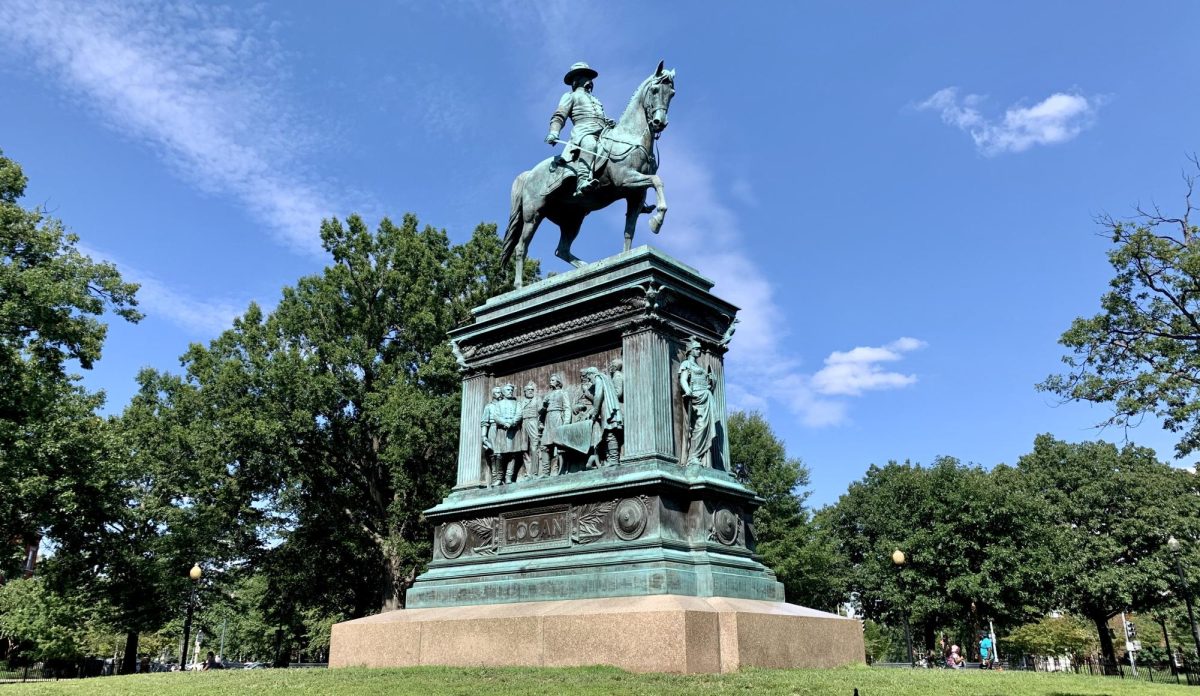Last updated on May 30, 2024 at 12:12 a.m.
As the final days of May approaches, Americans prepare to observe Memorial Day, a holiday dedicated to honoring those who have died in military service for the United States.
While many see it as the unofficial start of summer with barbecues, family gatherings and a long weekend, its origins are rooted in the aftermath of the Civil War. Central to this story is John Alexander Logan, an Illinois native whose transformation and contributions have left a lasting impact on the nation.
Logan was born on Feb. 9, 1826, near present-day Murphysboro, Illinois. His early political career as an Illinois Representative was marked by his alignment with the Democratic Party and its pro-slavery sentiments. Logan was a Jacksonian Democrat, once sponsoring and subsequently passing a law that prevented freed slaves from settling in Illinois.
When the Civil War erupted, Logan, while initially remaining neutral, joined the Union’s 31st Illinois Volunteer Regiment in 1862, eventually rising to the rank of major general. His leadership in battles such as Fort Donelson, Vicksburg and Atlanta earned him a reputation as a strong military leader. According to Logan’s biographer James Pickett Jones, Logan’s wartime experience transformed him from a pro-Southern Democrat to a staunch Republican.
Get The Daily Illini in your inbox!
By the end of the war, Logan had aligned himself with the Radical Republicans of the Reconstruction era, eventually supporting measures to ensure civil rights for African Americans, such as the 13th and 14th Amendments.
On May 5, 1868, as commander-in-chief of the Grand Army of the Republic, a Union veteran organization founded in Decatur, Illinois, Logan issued General Order No. 11, designating May 30 as a day to decorate the graves of fallen soldiers with flowers — originally known as Decoration Day.
The first observance at Arlington National Cemetery saw the graves of both white and Black Union soldiers, as well as some Confederate soldiers adorned with flowers, and the tradition quickly spread across the country. Over 100 ceremonies were held in 1868 alone.
By 1910, Decoration Day was a legal holiday in most states. After World War I, it was broadened to honor all American military personnel who died in service, and by 1967 it had been officially named Memorial Day by the federal government.
In 1968, Memorial Day was officially designated by Congress as the last Monday in May, with the law taking effect in 1971, creating a three-day weekend that has since become a staple of American culture.
The transformation of Memorial Day from a solemn day of remembrance to a consumer-driven holiday has sparked controversy. An example of this controversy can be found in a June 1970 opinion piece by civil rights activist and U.S. Army veteran Dick Gregory, published in The Daily Illini.
Gregory criticized those he called “sunshine patriots,” a reference to Thomas Paine’s 1776 pamphlet, “The American Crisis. No. 1.” Gregory said that most Memorial Day celebrations were in the hands of “sunshine patriots; those who wave the flag and talk about love of country while sacrificing nothing.” In contrast, Gregory praised the “wintertime soldiers,” those who responded to “the moral call of duty and justice during times that try men’s souls,” again borrowing terminology from Paine.
Gregory’s piece was written during a time of significant unrest in the United States, as the Vietnam War and President Nixon’s expansion of the conflict into Laos and Cambodia created new fronts and more casualties.
A 1971 Gallup survey reported by the New York Times found that 61% of respondents felt that U.S. entry into the Vietnam War was a mistake. This marked a large increase compared to a 1965 Gallup poll which found that only 24% of respondents opposed U.S. involvement in Vietnam.
Recent years have seen continued discussions around Memorial Day that exemplify the tension similar to what Gregory described, with many calling for a return to the holiday’s more solemn roots.
Veterans of Foreign Wars, a U.S. war veteran service organization with over a million members, has voiced concerns about the holiday’s shift from a day of remembrance to a commercial event.
VFW wrote in a press release in 2008, “Do most non-veterans really recognize the importance of the day honoring their fellow Americans killed in war? Judging from what Memorial Day has become — simply another day off from work — the answer is a resounding no. Perhaps a reminder is due, then. And it is the duty of each and every veteran to relay the message.”
Logan’s original establishment of Memorial Day was rooted in a vision of honoring those who sacrificed their lives for the nation, a purpose that many feel has been overshadowed by consumer-focused celebrations.
“As Thomas Paine realized two centuries ago, this country will never survive the cheap verbal commitment of sunshine patriotism,” Gregory wrote. “America’s wintertime soldiers are the ones who should have been honored this Memorial Day.”







